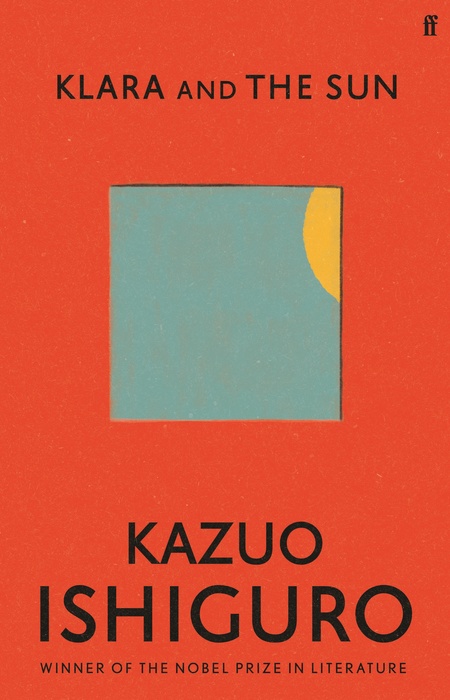It’s a weighty question but one that is always worth asking – what does it mean to love?
There will be as many answers to that as there are people on the planet but suffice to say that one person worth listening to, and listening to with rapture and wonder because his ideas and their sublime expression are that good, is Nobel Prize recipient and winner of the Man Booker Prize four times, Kazuo Ishiguro who delves into the mysteries and intricacies of love in his latest novel, Klara and the Sun.
It’s a novel that dares to ask the big question of the first paragraph in the context of a rapidly-changing world where technology is reshaping how people relate to each other, and even who they are at a fundamental level, and where love is variously cast around as an agreement, a parental imperative, the result of a close friendship and an innocence that simply accepts someone is worth loving and leaves it at that.
The observer of the many facets of love is Klara, an Artificial Friend (think intelligent empathetic robot)who spends much of the first part of the book in a store that among other things, sells companions like herself to the parents of lonely teenagers who are so isolated now from their peers that they need beings like Klara to socialise and specially staged events where they mix with others of their own kind.
The “kind” in question are children who have been genetically enhanced which gifts the recipients of the procedure with a fearsome intelligence and a manipulated predisposition to do well but who, because of their social stature and the prevalent use of home tutors, never see another person their age.
“Rosa began to discuss something else then, but I went on thinking about the Coffee Cup Lady and her Raincoat Man, and about what Manager said. And I tried to imagine how In would feel if Rosa and I, a long time from now, long after we’d found our different homes, saw each other again by chance on a street. Would I then feel, as Manager puts it, pain alongside my happiness?” (P. 21)
They are therefore, going to do well in life, which is important in a world where artificial intelligence has created a sizeable pool of have-nots, and a rarefied elite who dress to suit their station and who compete for the remaining small pool of jobs that will give them some shot at a reasonable life.
But what is life if love, companionship and friendship are strangely absent?
Everyone knows they need some sort of socialising but struggle to work out what that could be; this is where Klara comes in at least for the younger generation.
People like Josie, whose well-paid mother Chrissie, whom Klara refers to simply as the Mother after she is brought into their small two-person family, has a close and enduring friendship with her neighbour Helen, who is the mother of Josie’s only actual flesh and blood friend in her early teenage years, Rick.
Chrissie and Helen’s generation still seem to have friendships as we know them but Rick and Josie’s seems to be somewhat cut off from other people; they do have friends but not, at first in the book, like their parents do, a product of a world increasingly given over to social isolation and fearsome competition.
Into this not too far off world steps Klara, who is sharply observant of the world around her, first from her window perch in the store and then from the window of Josie’s bedroom.
From both these illuminating vantage points, literally and figuratively (Klara is solar powered and her reverence for the Sun informs much of the affectingly trusting feel of the narrative) Klara, who has the biggest heart of any Artificial Being – yes, she’s programmed to be empathetic but Klara seems to supersede her programming and becoming more human than many of the people around her – witnesses humanity in all its flawed glory and tries to work out what it means to really love and care for someone.
She is, as noted, fiercely observant but Ishiguro presents her with so innate warmth and humanity that you soon realise that her devotion to Josie, her mum, Rick and the others is not simply algorithms whirring into action but something far deeper and more profound.
So richly does Ishiguro build her and let her come alive that it is hard not to fall deeply in love with Klara as a protagonist who might be doomed the scrapheap eventually but who will, while she is alive, live more wonderfully and fully and with far more of a questioning mind, than any of us.
Reading about Klara and how she sees and interacts with the world is a sublime joy, the product of a writer who insightfully understands the many wonders of the human condition, and its attendant flaws, and who is able to bring them to vibrant, impactful life with words that rise off the page like a romantic poetry.
“Josie was now sitting in a new desk chair with castors on its feet, so that if she wished, she could move about while still sitting. But the Sun’s patterns on the walls were just as I’d remembered them from the many afternoons we’d spent there together. I sat down on the edge of her bed, and for a while we talked happily.” (P. 299)
Sharp social observation aside, and Ishiguro delivers on this with nuance and a rare gift for slipping stinging rebukes in the seemingly mildest of sentences, what really makes Klara and the Sun come vivaciously alive is the fact that Klara is so alive herself.
It is her ability to watch and not simply mimic but live out what love seems to her to be, and truthfully, she gets it right more often than she doesn’t, that fills Klara and the Sun with so much humanity that the protagonist seems on her own to make up for all the deficiencies of her found family and indeed, an entire society which seems to have lost its way.
This is a society that has gadgets and toys, possibilities and technological wonder but which seems to have forgotten what it means to value another person without taking into account their intelligence, productivity or economic value, and simply just loving them for them.
But Klara, despite witnessing this brave new world in action, doesn’t miss that loving someone simply for who they are, the way in which for instance she instinctively and wholly and without condition loves Josie, is what love really is. and she lies it out every single day of her life, wherever she is.
Klara and the Sun is yet another fine and intelligently affecting entry in Ishiguro’s superlative canon, a novel which takes as its emotional beating heart an artificial being who should ,by rights, be the least human of all the characters in a sharply observed, emotionally resonant book, but who becomes the most human of them all and transforms our idea of what it means to love, to truly love, in the process.

